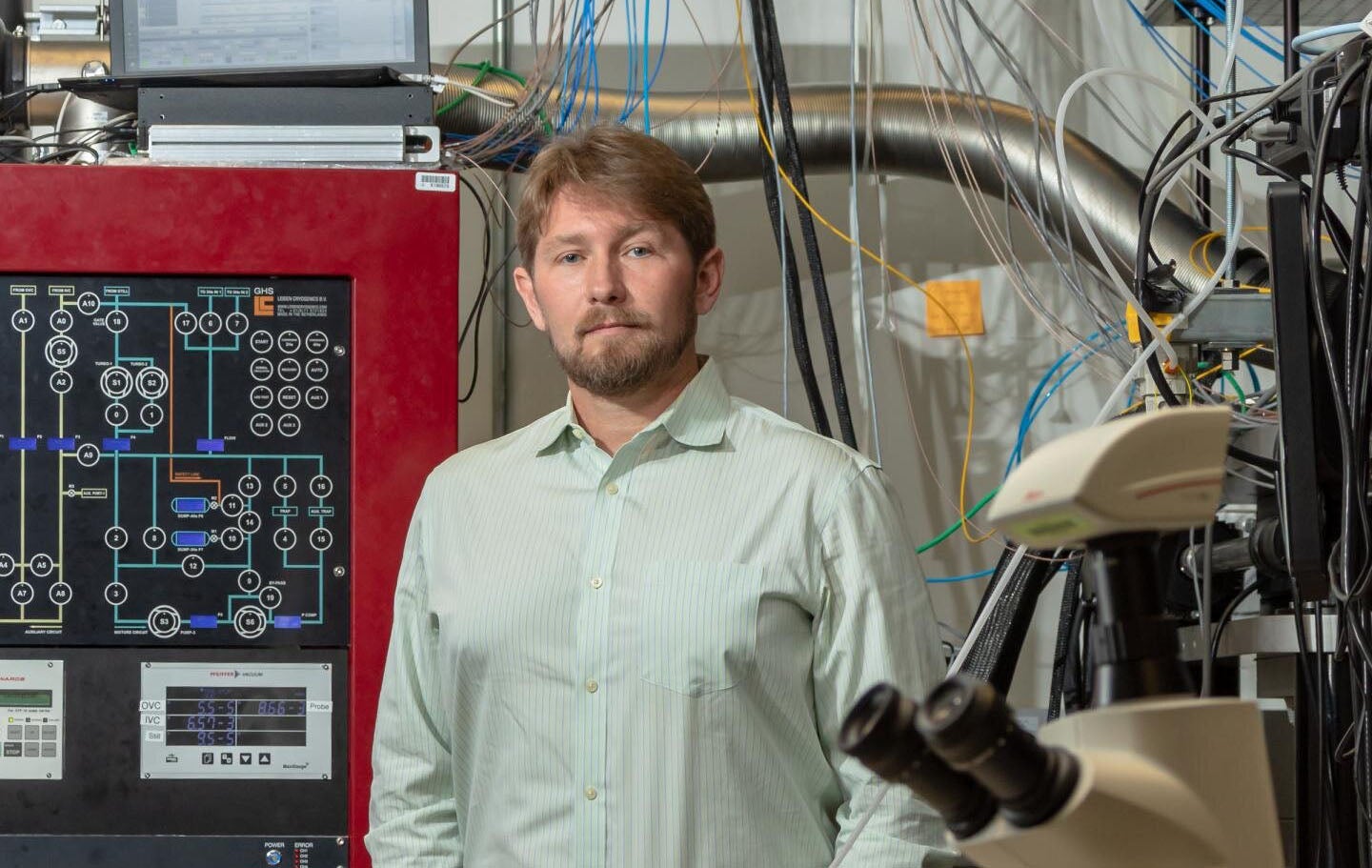Demystifying Quantum Information Science and its potential to revolutionize industries: An Interview with Travis Humble, Director of the Quantum Science Center at Oak Ridge National Lab
Jan 24, 2022

By Tricia Martinez, Managing Director of the Techstars Industries of the Future Accelerator
This past week I had the privilege of sharing some questions with Travis Humble, Director of the Quantum Science Center at ORNL.
Some background on Travis, prior to ORNL, Travis received a doctorate in theoretical chemistry from the University of Oregon. He currently holds a joint faculty appointment with the University of Tennessee Bredesen Center for Interdisciplinary Research and Graduate Education to work with students in developing energy-efficient computing solutions. Travis is also the editor-in-chief for ACM Transactions on Quantum Computing and co-chair of the IEEE Quantum Initiative. He is currently interim Director at the Department of Energy’s Quantum Science Center, and director of the lab’s Quantum Computing Institute, leading the development of new quantum technologies and infrastructure to impact the DOE mission of scientific discovery.
Question 1: How would you describe Quantum Technology so anyone can understand it?
Quantum technology is an exciting new approach to harness information using the most fundamental principles of physics, quantum mechanics. By controlling individual electrons and atoms, quantum technology stores and processes information in ways not possible with conventional transistors. These units of quantum technology, called qubits, offer denser information storage with more efficient methods for processing. As a result, quantum technology is broadening our understanding of information and enabling us to build new types of computers and other devices with advanced functions and features.
Question 2: How will quantum technology revolutionize industries of the future?
Several showcase quantum technologies have emerged that radically advance information processing. Quantum computers use large arrays of qubits to perform complex calculations such as scientific simulations to predict the properties of molecules and materials, such as catalysts, enzymes, and pharmaceuticals, among many other tasks, thus accelerating the research process and allowing innovation to enter the marketplace faster Quantum networks transmit qubits encoded in photons for secure and efficient communication of messages that are impervious to eavesdropping; such networks could enhance the security of our infrastructure and possibly lay the groundwork for a new “quantum internet” that transmits qubits between quantum computer data centers. Complementing these approaches is quantum sensing, which uses qubits to detect and classify the faintest signals imaginable. These sensors are expected to have a wide variety of applications in scientific discovery (such as the detection of the elusive dark matter), energy efficiency, and national security.
Question 3: What are Quantum’s greatest challenges today?
The fundamental qubits for quantum technology have been demonstrated in the laboratory but we are still developing the means to scale up these basic devices to full-scale, practical systems. Building quantum technologies requires tools and techniques with atomic precision and unprecedented purity. For example, because quantum computers operate at nearly absolute zero, simply repairing or improving them can take them offline for days. In addition, the complexity of designing and operating systems based on the principles of quantum mechanics require new insights into how we control materials to enable computation. Advancing these ideas requires the training and development of a highly skilled workforce to innovate and operate across the different layers of quantum technology.
Question 4: Where do you see the greatest opportunity for applications of quantum technology today and in the future?
Today there is a growing opportunity for quantum innovation. As the basic elements have become functional, many new ideas for building, operating, and using quantum technologies have started to emerge. Traditional applications in computing, communications, and sensing highlighted above are driving some of this development, but I believe we are only at the beginning of understanding the potential of quantum technologies to improve our world. For example, quantum computers enable new types of secure computing that truly keep a user’s data private from others — such guarantees could enable a broad range of new products and services based on privacy preservation. In truth, there is much to be discovered about the roles that quantum computers, networks, and sensors will have on our everyday lives in the future.
Question 5: What is one example of Quantum today that you love or excites you?
My favorite example of quantum technology is teleportation; not only is the word itself eye catching, but the principles to make it work embody the field. Here, teleportation means to share information between two locations, even though they have never been in contact with each other directly. This is possible by using a unique quantum mechanical phenomenon known as entanglement. Teleportation is an important operation for computing, communication, and even sensing techniques, and there have been multiple demonstrations in laboratories. What excites me about teleportation is that it directly challenges our conventional notions of what is possible and exposes the vast new realm of possibilities offered by quantum technologies.
Are you a Founder building deeptech? Are you a scientist Interested in Techstars Industries of the Future Accelerator? Sign up for Office Hours with me, subscribe to my blog, or reach out to me for support!
About the Author

Tricia Martinez
Tricia Martínez is the Managing Director of the Techstars Industries of the Future Accelerator. Tricia is an experienced serial entrepreneur, executive, and activist passionate about driving large-scale impact through technology and innovation. Tricia has earned titles including top 20 founders of color by Conscious Company Magazine, Hispanic Entrepreneur of the Year by USHCC, a top 100 FinTech Leader, among others. Tricia is also an alumna of the London Barclays Accelerator, powered by Techstars participating in the 2016 program with her blockchain-enabled financial services platform, Wala.
